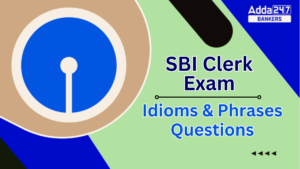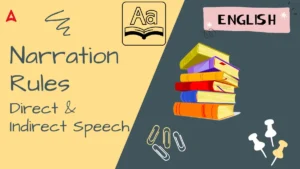Table of Contents
Sentence rearrangement is a common section in many competitive exams, including bank exams. This section tests a candidate’s ability to comprehend and structure paragraphs logically. It requires a blend of grammatical knowledge, logical reasoning, and an understanding of the flow of ideas. Here, we will delve into effective strategies, essential tips, and sample questions to help you master sentence rearrangement for bank exams.
Sentence Rearrangement
In sentence rearrangement tasks, candidates are provided with a set of jumbled sentences. The goal is to rearrange these sentences to form a coherent and meaningful paragraph. This tests not only one’s command over the language but also their ability to understand the progression of thoughts and ideas.
Tips and Tricks for Sentence Rearrangement
Identify the Theme
The first step is to read all the sentences and identify the central theme or subject. This understanding will guide you in determining the logical flow of information.
Look for the Introductory Sentence
The introductory sentence typically:
- Introduces the main topic.
- Does not start with pronouns like “he,” “she,” “it,” “they,” etc.
- Is self-contained and does not require preceding context.
Identify Concluding Sentences
Concluding sentences often summarize the paragraph or present a final thought. They may contain concluding words or phrases like “thus,” “therefore,” “in conclusion,” etc.
Find Logical Connections
Look for logical connectors and transitional phrases that indicate relationships between sentences, such as:
- Addition: and, also, moreover, furthermore
- Contrast: but, however, on the other hand, although
- Cause and Effect: because, therefore, thus, consequently
- Sequence: first, next, then, finally
Spot Pairs of Sentences
Some sentences naturally pair together. Identifying these pairs can help in piecing together the sequence. Look for:
- Pronouns referring to nouns in previous sentences.
- Continuation of an idea or event mentioned in a preceding sentence.
Maintain Coherence and Cohesion
Ensure that the rearranged sentences make logical sense and maintain a smooth flow of ideas. Each sentence should logically lead to the next.
Practice Regularly
Regular practice helps in getting familiar with various patterns of sentence arrangements and improves speed and accuracy.
Sample Questions and Solutions
Example 1
A. Many people came to the exhibition.
B. It was held at the city gallery.
C. The exhibition was a grand success.
D. It showcased contemporary art.
- Solution:
Identify the introductory sentence: B (introduces the event and location) - Determine the sequence: B (event and location) → A (attendance) → D (details of the exhibition) → C (outcome)
- Rearranged Paragraph: B – A – D – C
Example 2
A. The manager decided to call a meeting of all the employees.
B. The employees were not satisfied with the working conditions.
C. He wanted to discuss the issues and find solutions.
D. The decision was taken after several complaints were received.
Solution:
- Identify the introductory sentence: A (initiates the action)
- Determine the sequence: A (meeting decision) → D (reason for decision) → B (employee dissatisfaction) → C (purpose of meeting)
- Rearranged Paragraph: A – D – B – C
Example 3
A. When he finally arrived, he apologized for the delay.
B. John was supposed to reach the office by 9 AM.
C. He missed the bus and had to wait for the next one.
D. Unfortunately, he overslept and left home late.
Solution:
- Identify the introductory sentence: B (sets the expectation)
- Determine the sequence: B (expectation) → D (reason for delay) → C (consequence) → A (result)
- Rearranged Paragraph: B – D – C – A
Example 4
A. The company plans to launch its new product line next month.
B. The market response to their previous products was very encouraging.
C. They have already started advertising campaigns.
D. The management is hopeful about the success of the new products.
Solution:
- Identify the introductory sentence: A (announces future plan)
- Determine the sequence: A (announcement) → C (preparations) → D (management’s hope) → B (past success)
- Rearranged Paragraph: A – C – D – B
Mastering sentence rearrangement requires a strategic approach and regular practice. By understanding the theme, identifying key sentences, and maintaining logical flow, you can enhance your performance in this section of bank exams. Use the tips and sample questions provided to guide your preparation and practice consistently to improve your speed and accuracy. With these strategies, you’ll be well-equipped to tackle sentence rearrangement tasks effectively.




 Important Topics for CIL MT English Lang...
Important Topics for CIL MT English Lang...
 Idioms and Phrases Questions for SBI Cle...
Idioms and Phrases Questions for SBI Cle...
 Narration Rules for Direct & Indirec...
Narration Rules for Direct & Indirec...







